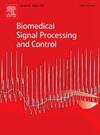通过条件超扭滑模控制和红狐优化提高前列腺癌激素治疗的疗效
IF 4.9
2区 医学
Q1 ENGINEERING, BIOMEDICAL
引用次数: 0
摘要
肿瘤复发仍然是前列腺癌激素治疗的一个重大挑战,特别是因为长期雄激素剥夺后雄激素非依赖性细胞的再生。间歇性雄激素抑制被认为可以延缓复发,同时减少副作用,从而改善患者的生活质量。本研究比较了几种控制策略,包括滑模控制(SMC)、积分滑模控制(ISMC)和条件超扭转滑模控制(CSTSMC),以及一种用于参数整定的新型Redfox优化技术。本研究旨在评估这些策略的潜力,以提高激素治疗在控制肿瘤复发方面的有效性。我们的分析表明,CSTSMC在鲁棒性、跟踪精度和适应性方面优于其他控制方法,使其成为该应用中最有效的选择。尽管基于控制器的肿瘤细胞减少有好处,但治疗耐药性仍然是一个主要问题,强调了精确药物调度的重要性。为了提高控制器的性能,采用Redfox优化算法,以时间绝对误差的积分为目标函数进行参数整定。采用基于lyapunov的理论框架保证了系统的稳定性。采用MATLAB/Simulink仿真对所设计控制器的有效性进行了评估,随后通过采用C2000 Delfino™微控制器和F28379D Launchpad板的硬件在环设置进行了实时验证。本文章由计算机程序翻译,如有差异,请以英文原文为准。
Enhancing the efficacy of hormone therapy in prostate cancer through Conditional Super-Twisting Sliding Mode Control and Redfox optimization
Tumor recurrence remains a significant challenge in prostate cancer hormone therapy, particularly because of the regeneration of androgen-independent cells following prolonged androgen deprivation. Intermittent androgen suppression has been suggested to delay relapse while minimizing side effects, thereby improving patients’ quality of life. This study compares several control strategies, including the Sliding Mode Control (SMC), Integral Sliding Mode Control (ISMC), and Conditional Super-Twisting Sliding Mode Control (CSTSMC), along with a novel Redfox optimization technique for parameter tuning. This study aimed to evaluate the potential of these strategies to enhance the effectiveness of hormone therapy in controlling tumor relapse. Our analysis reveals that the CSTSMC outperforms other control methods in terms of robustness, tracking accuracy, and adaptability, making it the most effective option for this application. Despite the benefits of controller-based tumor cell reduction, treatment resistance remains a major concern, underscoring the importance of precise drug scheduling. To enhance the controller performance, parameter tuning was performed using the Redfox optimization algorithm with the integral of time absolute error serving as the objective function. The system stability was ensured using a Lyapunov-based theoretical framework. The effectiveness of the designed controllers was assessed using MATLAB/Simulink simulations, followed by real-time validation through a hardware-in-the-loop setup employing the C2000 Delfino™ microcontroller and F28379D Launchpad board.
求助全文
通过发布文献求助,成功后即可免费获取论文全文。
去求助
来源期刊

Biomedical Signal Processing and Control
工程技术-工程:生物医学
CiteScore
9.80
自引率
13.70%
发文量
822
审稿时长
4 months
期刊介绍:
Biomedical Signal Processing and Control aims to provide a cross-disciplinary international forum for the interchange of information on research in the measurement and analysis of signals and images in clinical medicine and the biological sciences. Emphasis is placed on contributions dealing with the practical, applications-led research on the use of methods and devices in clinical diagnosis, patient monitoring and management.
Biomedical Signal Processing and Control reflects the main areas in which these methods are being used and developed at the interface of both engineering and clinical science. The scope of the journal is defined to include relevant review papers, technical notes, short communications and letters. Tutorial papers and special issues will also be published.
 求助内容:
求助内容: 应助结果提醒方式:
应助结果提醒方式:


